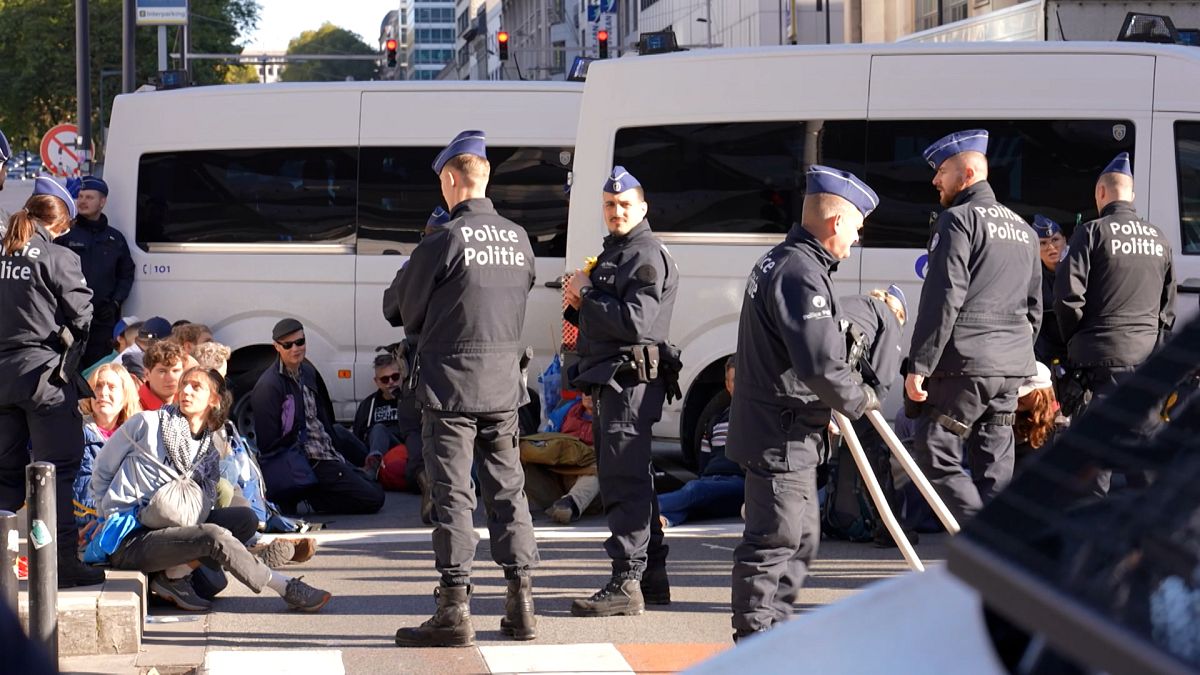Climate activist Greta Thunberg was detained in Brussels on Saturday for participating in a sit-in protest urging the European Union to end subsidies for fossil fuels. Thunberg, along with other supporters from ‘United for Climate Justice’ and “Extinction Rebellion,’ blocked a road near the European Parliament and Commission buildings and were subsequently surrounded by police. Despite the arrests, onlookers showed their support by chanting slogans. The protest was part of a larger effort to pressure the EU to follow through on commitments to phase out subsidies for the oil and gas industry.
In an open letter to the European Union and European Commission President Ursula von der Leyen, ‘United for Climate Justice’ outlined their demands for the phase-out of fossil fuel subsidies by 2025 and transparency measures for EU member states. The group highlighted the contradiction between von der Leyen’s promises to end fossil fuel subsidies and the EU’s continued support of the industry with over 100 billion euros in subsidies annually. Spokesperson Angela Huston Gold emphasized the urgency of the climate crisis and the need for concrete action from the EU to fulfill its commitments and address the catastrophic impact of climate change.
The protest in Brussels was just one part of the group’s larger strategy to push for action on climate change. Gold stated that they are prepared to use various tactics including marches, letters, lawsuits, and civil disobedience to disrupt the status quo and draw attention to the urgency of the climate crisis. By engaging in direct action and refusing to be silenced, the group hopes to hold the European Commission accountable and push for concrete steps towards phasing out fossil fuel subsidies. The group also plans to expand their actions across Europe and in Brussels, with stickers being distributed to promote further protests in October.
The actions taken by Thunberg and ‘United for Climate Justice’ in Brussels underscore the growing demand for urgent and meaningful action on climate change. As governments and institutions continue to fall short on their commitments to reduce greenhouse gas emissions and transition to renewable energy, grassroots movements and activists are stepping up to hold them accountable. The protest in Brussels serves as a reminder that the climate crisis is a global issue that requires immediate and coordinated action at all levels of society. By mobilizing people and resources to push for change, activists like Thunberg are pushing the boundaries of traditional activism and challenging policymakers to prioritize the planet and future generations.
The European Commission’s failure to follow through on commitments to end fossil fuel subsidies highlights the challenges of transitioning to a more sustainable energy system. Despite acknowledging the need to phase out subsidies for oil and gas, the EU continues to provide significant financial support to the industry, undermining efforts to combat climate change and transition to renewable energy sources. The persistence of subsidies for fossil fuels not only perpetuates environmental degradation but also hinders the development of clean energy alternatives, further exacerbating the climate crisis. By shining a spotlight on this issue through protests and direct action, activists are calling attention to the urgent need for policy changes that support a transition to a low-carbon economy.
The protest in Brussels and the subsequent arrests of activists like Thunberg highlight the risks and sacrifices that individuals are willing to make in order to advocate for climate justice. By putting themselves on the line and facing potential consequences, activists are demonstrating their unwavering commitment to protecting the planet and ensuring a sustainable future for all. Despite facing challenges and resistance from authorities, activists like Thunberg and ‘United for Climate Justice’ remain undeterred in their mission to hold policymakers accountable and push for transformative change. Their actions serve as a powerful reminder of the importance of collective action and grassroots organizing in driving meaningful progress on climate change and environmental sustainability.











